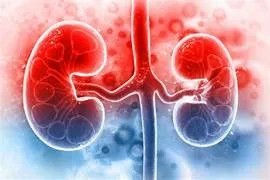Concerning Increase in End-Stage Renal Disease Among Young Adults: Experts Highlight Alarming Factors
A concerning rise in end-stage renal disease (ESRD), or kidney failure, is being seen among individuals as young as 25. Medical professionals attribute this trend to lifestyle factors like sedentary behavior, poor diet, obesity, type 2 diabetes, and hypertension, along with genetic predisposition, all contributing to the decline in kidney function.
This alarming rise in ESRD cases among young adults in India has prompted urgent calls for greater awareness, preventive measures, and initiatives to promote organ donation. ESRD marks a critical stage of kidney failure where the organs progressively lose their ability to filter waste and excess fluids from the bloodstream, leading to dangerous buildups of electrolytes and toxins in the body.
Dr. Saurabh Pokhariyal, Co-Founder and Director of VitusCare Medlife Pvt. Ltd., notes that modern lifestyles characterized by unhealthy eating habits and physical inactivity are major drivers of this health crisis. The growing consumption of processed foods high in unhealthy fats, sugars, and salt contributes to obesity and increases the risk of type 2 diabetes and hypertension—three primary causes of kidney disease worldwide.
Additionally, Dr. Pokhariyal points out that a sedentary work environment and insufficient physical activity exacerbate these health issues, often requiring dialysis or kidney transplantation for management. Environmental factors such as exposure to heavy metals in drinking water and the pervasive use of pesticides in agriculture can also lead to kidney inflammation and damage. Moreover, the overuse of over-the-counter analgesics and antibiotics poses significant risks, as improper usage can harm kidney function.
Genetic Factors Contributing to ESRD
Genetic predisposition plays a crucial role in the onset of ESRD, with certain inherited conditions directly affecting kidney function. Polycystic kidney disease (PKD) is one prevalent genetic disorder that leads to ESRD, characterized by the formation of fluid-filled cysts in the kidneys, which progressively impair their filtering abilities. Dr. Mayanka Lodha Seth, Chief Pathologist at Redcliffe Labs, notes that symptoms often manifest only in later stages, complicating early diagnosis.
Dr. Seth also highlights that genetic mutations influencing blood pressure contribute to a higher risk of hypertension in individuals with a family history of the condition. Uncontrolled high blood pressure can cause significant damage to the kidney’s blood vessels, eventually resulting in ESRD.
Preventing ESRD: Practical Steps
To mitigate the risk of developing ESRD, Dr. Pokhariyal advocates for a comprehensive approach that emphasizes lifestyle changes and medical education. He recommends adopting a balanced diet low in processed foods, salt, and animal proteins, combined with regular exercise to reduce the likelihood of developing diabetes and hypertension—two critical risk factors for kidney disease.
Key preventative measures include:
- Maintaining a healthy body weight
- Avoiding smoking and excessive alcohol consumption
- Managing pre-existing conditions such as diabetes and hypertension
Raising public awareness about the dangers of self-medication with over-the-counter painkillers and antibiotics is crucial. Seeking prompt medical advice for health concerns and regularly monitoring kidney function can facilitate early detection and management of kidney disease, potentially preventing progression to ESRD.











